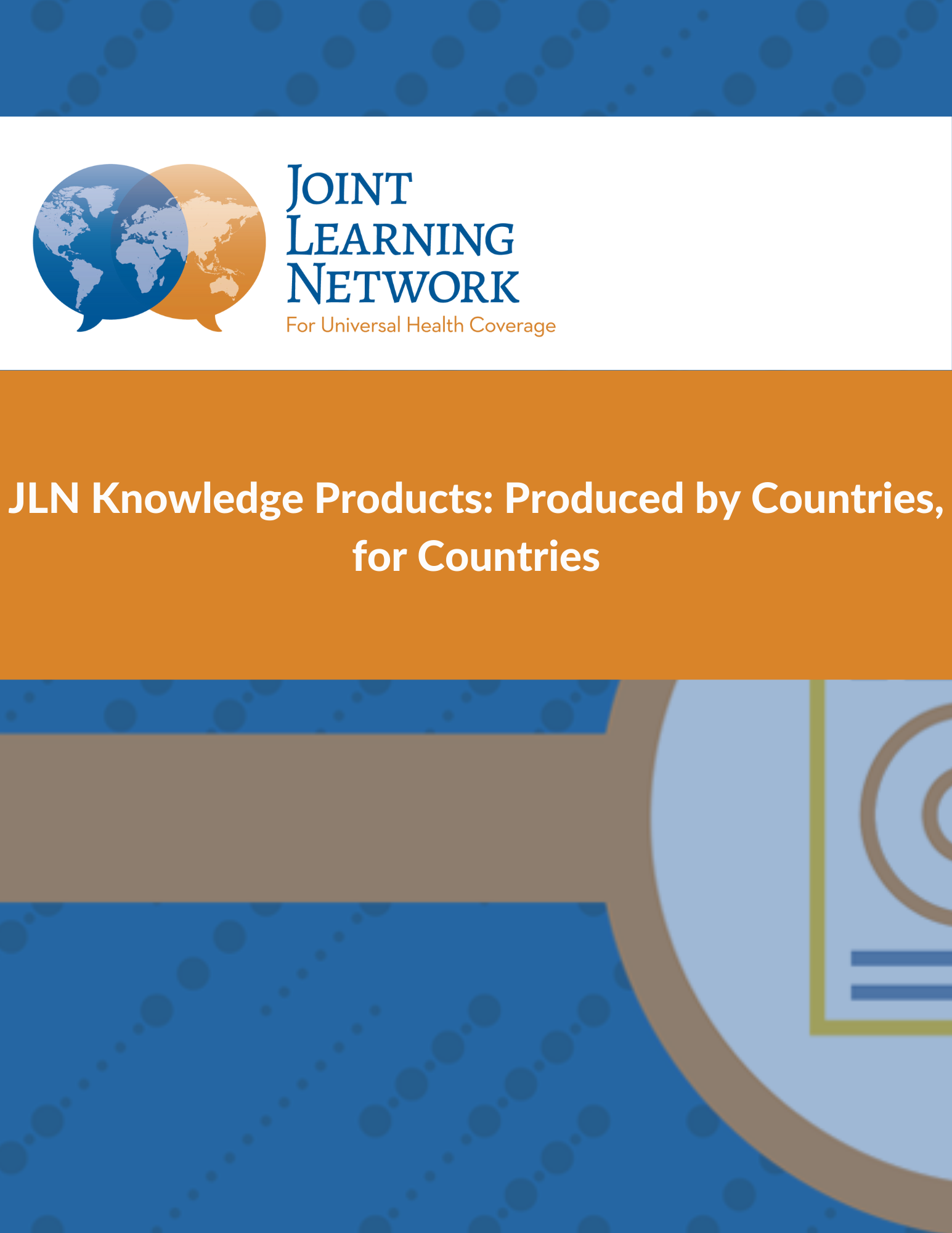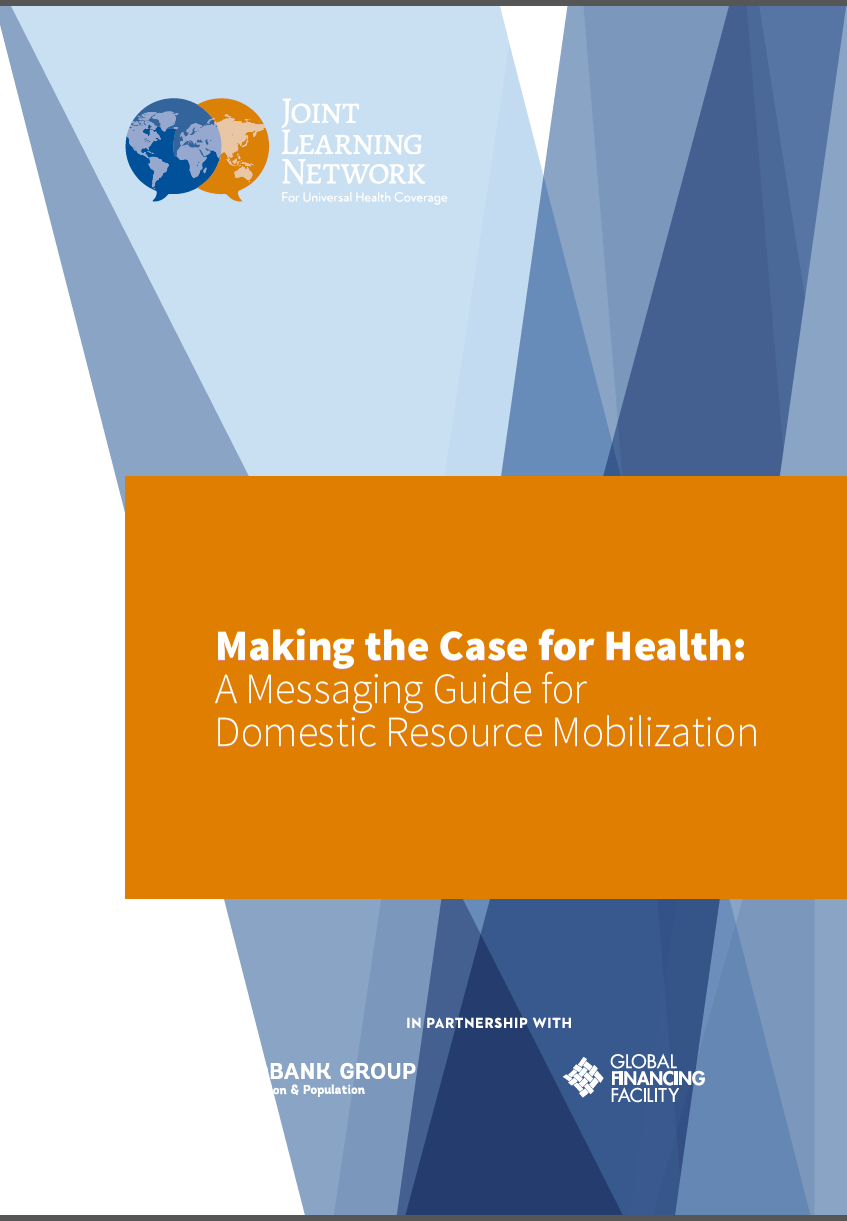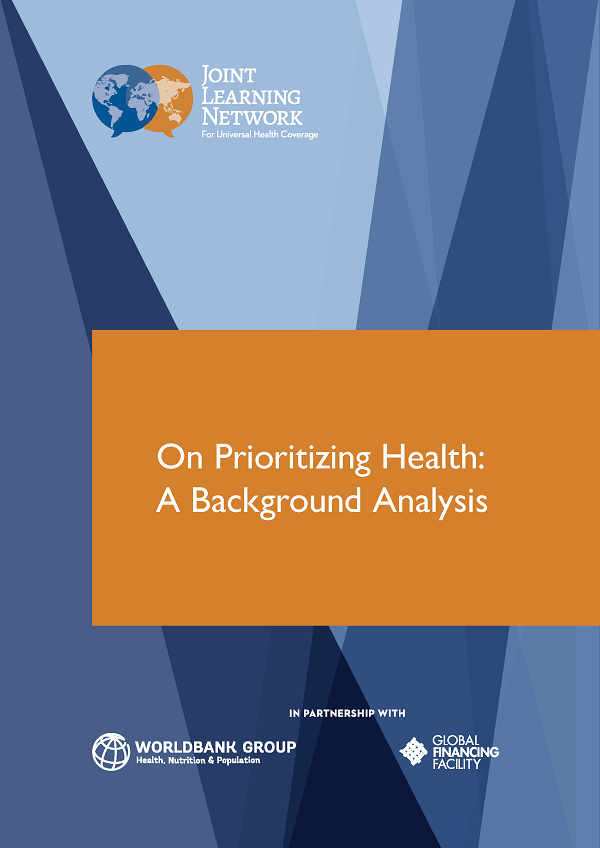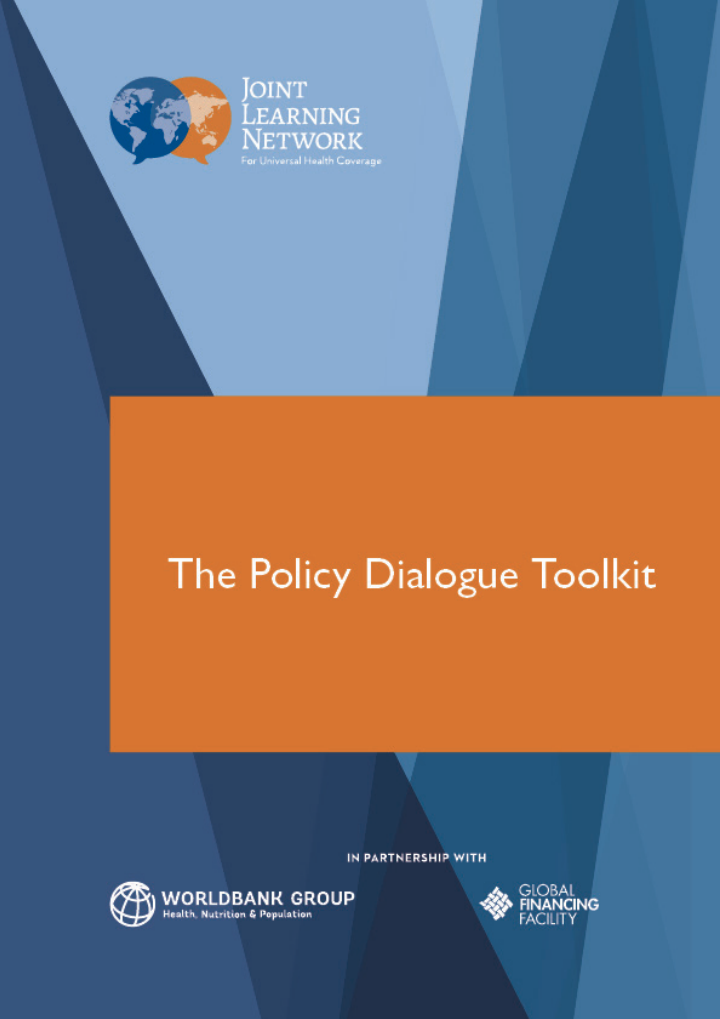
JLN Knowledge Products: Produced by Countries, for Countries
This KP brochure presents a list and brief of the JLN Knowledge products produced by countries for countries.

This KP brochure presents a list and brief of the JLN Knowledge products produced by countries for countries.
The DRM collaborative created narrative summaries to help Ministry of Health policymakers effectively analyze and present evidence-based arguments for investment in health to their Ministry of Finance counterparts using their own budget data and supplemented with global resources. The concise analyses explore how trends in data are related to within-country policy dialogue and/or health financing reforms. Each narrative summary shares a country experience and demonstrates how countries can use historical evidence for policy dialogue. Paired with any of the additional DRM collaborative products such as the Making the Case for Health: A Messaging Guide for Domestic Resource Mobilization or other Policy Dialogue Toolkit resources (accessible to myJLN users), narrative summaries can be used by policymakers in Ministries of Health to engage in policy dialogue with their counterparts in their respective Ministries of Finance. Several DRM collaborative member countries (and also some non-member countries using DRM collaborative knowledge products) are in the process of compiling their historical budgetary data and putting it together as a narrative summary in a standardized format. Narrative summaries will be available here for download as and when completed and made available by countries. Co-produced by country members and the World Bank technical team, narrative summaries are useful for policymakers who are seeking to identify and understand historical health financing trends in their country budgetary data. Country members interested in developing a narrative summary for their country are requested to contact [email protected]. Narrative Summary on Public Expenditure for Health in Armenia Narrative Summary on Public Expenditure for Health: Ministry of Health & Family Welfare Budgetary Spending in Bangladesh Narrative Summary on Public Expenditure for Health in Cambodia Narrative Summary on Public Expenditure for Health: Central Government Budgetary Spending in Indonesia Narrative Summary on Public Expenditure for Health in Laos Narrative Summary on Public Expenditure for Health in Nepal Narrative Summary on Public Expenditure for Health in Pakistan Narrative Summary on Public Expenditure for Health in Vietnam Narrative Summary on Public Expenditure for Health in Ghana

Making the Case for Health: A Messaging Guide for Domestic Resource Mobilization was created following DRM collaborative member country requests for evidence-based arguments that can support communication across the health and finance sectors to make the case for investment in health. The guide has benefitted from the joint participation of health and finance policy makers in distilling and refining these messages to bridge communications in the most effective way possible.

This resource shares the results of a global review of country efforts to prioritize public spending in the health sector, intended as background reading material developed during the course of the JLN’s Domestic Resource Mobilization (DRM) collaborative. On Prioritizing Health: A Background Analysis includes a global review of health share of public spending across 20 low, middle, and high-income countries, to identify successful cases of reprioritization. Subsequent efforts based on this analysis can focus on a deep dive for a sub-set of countries that have sustained recent reprioritization efforts toward health. Health is often seen as an unproductive sector, which can make it challenging for Ministries of Health to make the case for greater investment. By gathering insights into successful reprioritization efforts, countries and policymakers can better understand how successful efforts have overcome common bottlenecks.

There is no excerpt because this is a protected post.